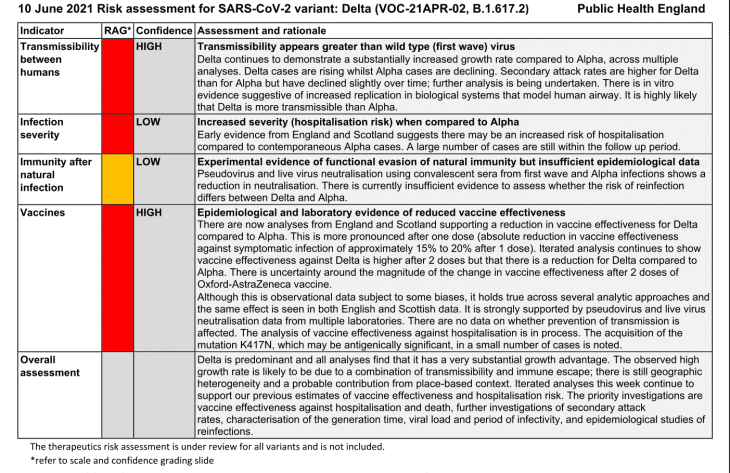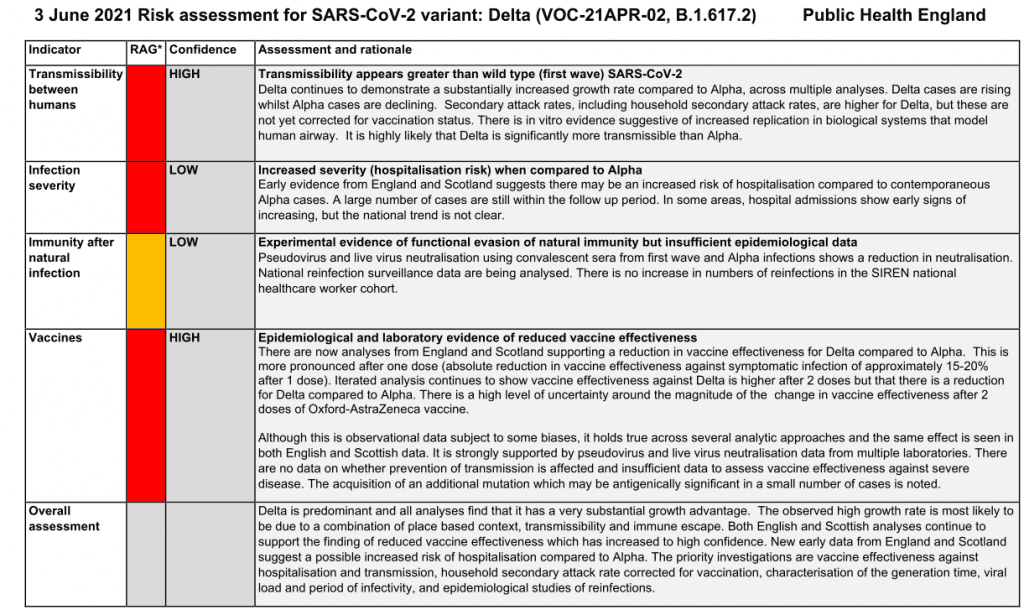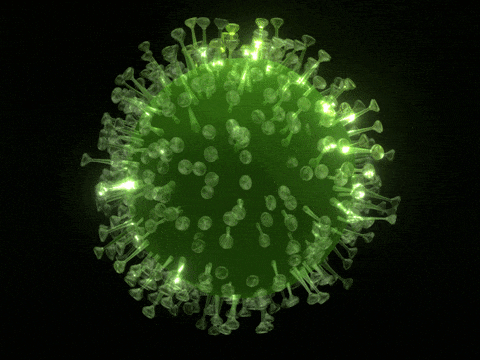
UK: government risk assessment of coronavirus Delta variant B.1.617.2 – evidence of frequent vaccine failure or decreased effectiveness in humans * UPDATED *
- UPDATED IMAGE ABOVE
- * UK risk assessment for Delta variant as per 10th June 2021
Previous UK risk assessment as per 3rd June 2021
The UK government risk assessment for B.1.617.2 Delta variant has been published today and it’s NOT good news.
- Transmissibilty between humans = Transmissibility appears greater than the wild type virus
- Infection severity = More severe clinical picture or higher infection fatality than from wild type SARS-CoV-2 infections
- Immunity after natural infection = Experimental evidence of functional evasion of naturally acquired immunity
- Vaccines = Evidence of frequent vaccine failure or decreased effectiveness in humans
Epidemiological and laboratory evidence of reduced vaccine effectiveness There are now analyses from England and Scotland supporting a reduction in vaccine effectiveness for Delta compared to Alpha [B.1.1.7]. This is more pronounced after one dose (absolute reduction in vaccine effectiveness against symptomatic infection of approximately 15-20% after 1 dose). Iterated analysis continues to show vaccine effectiveness against Delta is higher after 2 doses but that there is a reduction for Delta compared to Alpha. There is a high level of uncertainty around the magnitude of the change in vaccine effectiveness after 2 doses of Oxford-AstraZeneca vaccine.
Although this is observational data subject to some biases, it holds true across several analytic approaches and the same effect is seen in both English and Scottish data. It is strongly supported by pseudovirus and live virus neutralisation data from multiple laboratories. There are no data on whether prevention of transmission is affected and insufficient data to assess vaccine effectiveness against severe disease. The acquisition of an additional mutation which may be antigenically significant in a small number of cases is noted.
Overall assessment: Delta [B.1.617.2] is predominant and all analyses find that it has a very substantial growth advantage. The observed high growth rate is most likely to be due to a combination of place based context, transmissibility and immune escape. Both English and Scottish analyses continue to support the finding of reduced vaccine effectiveness which has increased to high confidence. New early data from England and Scotland suggest a possible increased risk of hospitalisation compared to Alpha. The priority investigations are vaccine effectiveness against hospitalisation and transmission, household secondary attack rate corrected for vaccination, characterisation of the generation time, viral load and period of infectivity, and epidemiological studies of reinfections.
Download the report here: Investigation of SARS-CoV-2 variants of concern: variant risk assessments
India: The stunning rise of the B.1.617.2 [Delta] coronavirus variant






